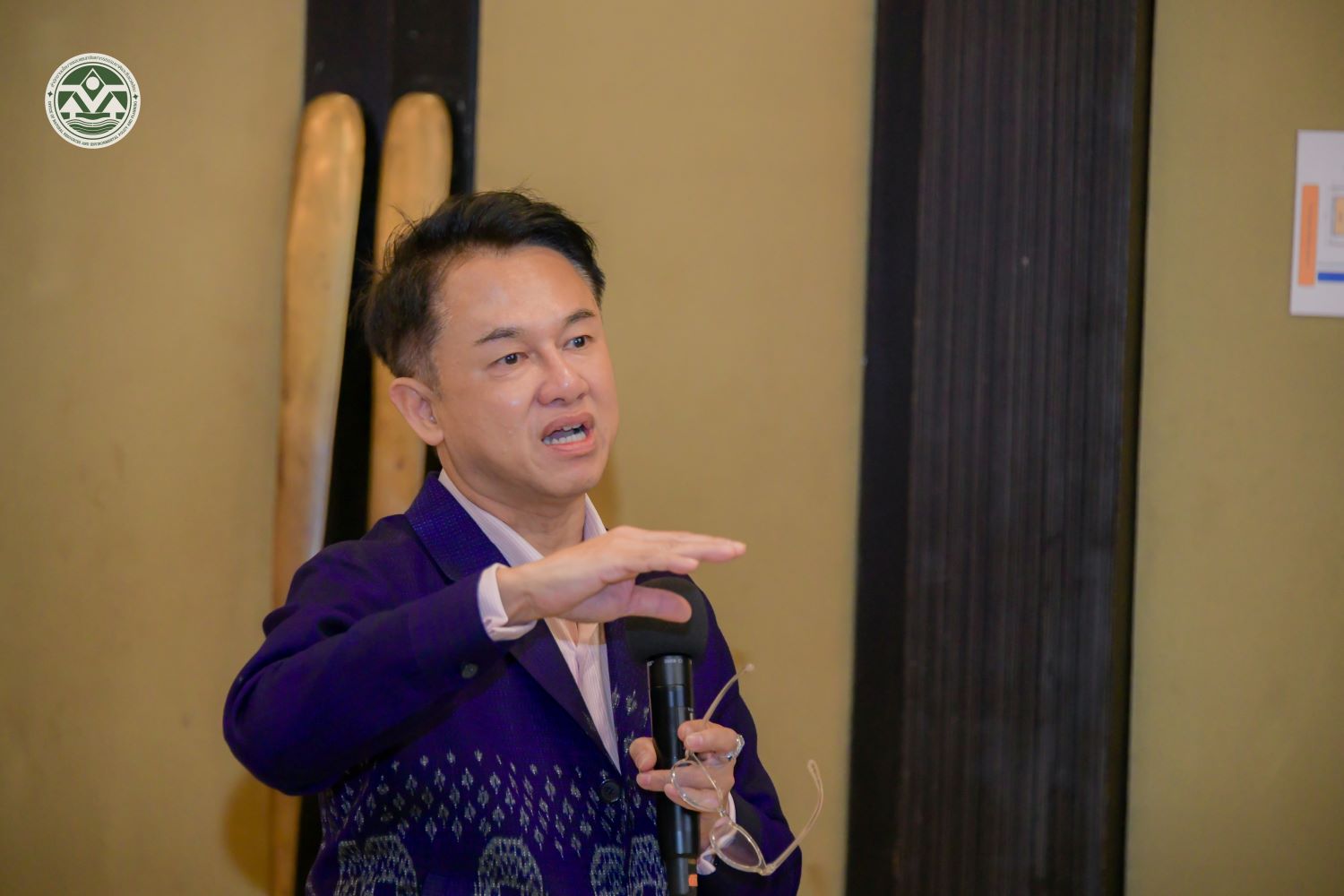
Niran Nirannoot, BIOFIN Manager, Thailand, and Annabelle Trinidad, Senior Technical Advisor of Global BIOFIN
BIOFIN Thailand organized the Global Biodiversity Expenditure Taxonomy workshop on 14 May 2024 in Bangkok, Thailand. The aim was to gather insights from experts on biodiversity attribution rates for two important categories: green economy and sustainable use. Since the introduction of BIOFIN Day in Thailand in 2017, launched by Her Royal Highness Princess Maha Sirindhorn, who championed the "sufficiency economy" principles of her father, the late King Bhumibol"," the role of the private sector in mainstreaming biodiversity has increased significantly.
The GLOBE workshop enabled the government to engage in a dialogue to understand the structure of government spending on biodiversity. This understanding allows the government to delineate specific functions and the purpose of budget allocation and spending over time, following the COFOG (Classification of the Functions of Government). Participants came from various sectors, including general public services, business, environmental protection, health and education.
.jpg)
GLOBE Workshop organized in Bangkok, Thailand by UNDP BIOFIN and ONEP.
Despite moderate expectations in terms of attendance, nearly 100 participants, including both core and non-core biodiversity agencies, attended the workshop. Representatives from various agencies such as the Ministry of Natural Resources and Environment, the Bank of Thailand, the National Economic and Social Development Council and the Ministry of Agriculture, Health, Science, Education and Tourism were present. Sub-national levels of government such as Prik Municipality, Yasothon Municipality, Panusnikom Municipality and the National Association of Municipalities of Thailand were also actively involved. Well-known organizations such as the Global Youth Biodiversity Network of Thailand, the Biodiversity-based Economy and Development Office (BEDO) and the Electricity Generating Authority of Thailand (EGAT) were also well represented.
The workshop began with a warm welcome from Mr Prasert Sirinapapon, Secretary-General of the Ministry of Natural Resources and Environmental Policy and Planning, who emphasized the importance of GLOBE in shaping Thailand's biodiversity spending landscape. “GLOBE will pave the way for Thailand to understand the structure of biodiversity spending and help the country achieve the Global Biodiversity Framework. This is an important first step for Thailand to integrate GLOBE into the fiscal budget and spending of government agencies. It will be used as due diligence for private sector investment in biodiversity”, - he said.
.jpg)
Mr. Prasert Sirinapapon, Secretary General of ONEP delivered Opening Remarks
Participants discussed various aspects, including biodiversity financing, policy implementation in Thailand, and the level of budget and expenditure allocations.
The Fiscal Policy Office of the Ministry of Finance provided insightful examples to get the discussion going. For example, the Comptroller General Office has achieved a commendable rate of 100 BAR with introducing the green supply chain, which all government agencies in Thailand have adopted.
Agencies such as the Electricity Generating Authority of Thailand have dedicated a significant portion of their expenditure - between 75% and 100% - to biodiversity conservation, in line with their organizational mandate. From the green supply chain to sustainable energy and from sustainable tourism to sustainable urban and land management, EGAT has allocated a certain portion of its budget to biodiversity conservation and supports the Royal Plant Genetic Conservation Project led by HRH Princess Sirindhorn.
Thai herbal and spa products attained global renown owing to the vision of the Department of Traditional and Alternative Medicine (DTAM), to lead traditional medicine in Asia by 2027. Budgets and expenditures were directed towards biodiversity preservation and the preservation of local knowledge on traditional plant conservation, buoyed by collaboration with the Royal Plant Genetic Conservation Project. The Department of Tourism of the Ministry of Tourism and Sports proudly emphasized that a significant portion of their expenditures is dedicated to biodiversity, aligning with Thailand's sustainable tourism policies.
The Department of Tourism of the Ministry of Tourism and Sports proudly added that most of their expenditure is allocated to biodiversity. So, the allocation rates for biodiversity are below 100% and 75%, with a strong policy for sustainable tourism in Thailand. Meanwhile, the National Agency for the Development of Science and Technology plays an important role in awareness and education, biosafety, and sustainable use.
Local pioneers, including community leaders and the National Municipal Association of Thailand, have demonstrated effective budgeting and financing strategies for biodiversity conservation. Their initiatives, such as developing water supply services for the conservation of freshwater ecosystems and budgeting for the expansion of green spaces, emphasized the importance of grassroots efforts for biodiversity conservation.
.jpg)
Mr.Thamrong Chumnoom Ph.D., Deputy Permanent Secretary to the Yasothon City Municipality of Yasothon Province (Left) and Mr. Suriya Yeekhun, Mayor of Prik Sub-district Municipality Office of Songkhla Province (Middle), and Ms. Kanokwan Charoenrat, Office of the Mayor of Panus Nikom Municipality of Chon Buri Province (Right) discussing the biodiversity attribution rates.
What’s next for GLOBE?
Looking to the future, the workshop laid the foundation for potential collaborations, including with the Bank of Thailand (BOT) and BEDO, to further develop biodiversity taxonomy and promote nature-friendly activities. Dr. Thanit Sungthavorn, Deputy Director of BEDO and President of the Asia ABS Accounting Forum, expressed strong support for leading the access and benefit-sharing category and setting allocation rates per program/budget line.

Mr. Thanit Sungthavorn Ph.D., Deputy Director of BEDO committed to leading the ABS category under the GLOBE Taxonomy.
Survey results from the workshop favored wider applications of GLOBE in budgeting, private sector investment assessment, and integration into national biodiversity strategies and action plans (NBSAPs) aligned with global biodiversity targets.
Categories
Archives
- Marzo 2022 (9)
- Febrero 2022 (4)
- Enero 2022 (3)
- Diciembre 2021 (3)
- Noviembre 2021 (5)
- Octubre 2021 (3)
- Septiembre 2021 (3)
- Agosto 2021 (4)
- Julio 2021 (4)
- Junio 2021 (10)